Croatia logs 1,376 new coronavirus cases, 33 deaths
April 4, 2021- In the past 24 hours, 1,376 new coronavirus cases and 33 COVID deaths have been registered in Croatia, the national COVID-19 response team said on Sunday.
Currently, there are 13,432 active cases, including 1,511 hospitalized patients, of whom 158 are on ventilators, while 33,342 people are self-isolating.
To date, Croatia has registered 280,026 coronavirus cases, 6,058 deaths, and 260,536 recoveries, including 1,664 in the past 24 hours.
To date, 1,582,500 people have been tested for the virus, including 6,580 in the past 24 hours, and 425,971 people have been vaccinated against it, including 98,322 with both doses. For 1,648 people, there is no information as to whether they have received one or both doses.
For more about Covid-19 in Croatia, follow TCN's dedicated page.
Highlights of the Week: 5 Big Events in Croatia from March 29 to April 4, 2021
April 4, 2021 - From new epidemiological measures imposed due to the increase in COVID-19 infections to the arrival of Ryanair, here are TCN's five highlights of the week, recapping the big events in Croatia from March 29 to April 4, 2021.
At the end of March, the fight against the pandemic was in its final stages, taking into account the government's efforts to promote the return of the tourist season, the reopening of business in the country, and the announcement of mass vaccinations in Zagreb after Easter. Despite this, the novel coronavirus has once again warned that its presence continues to threaten the population, and this has since manifested in the increase in cases across the country. On the other hand, sporting and cultural events have also stood out as we entered a new month this week.
Croatia U-21 reaches the EURO Tournament Quarterfinals
The eyes were not only all firmly on the senior team, who, after starting the qualifying process with an away loss against Slovenia, got back on track with six points against Cyprus and Malta in Rijeka. Luka Modric also became the most capped player in the history of the Croatian National Team.
Some good news also came for those who follow the younger generations, as the U-21 team won their ticket to the quarter-finals of the EURO tournament in a dramatic fashion. Those led by Igor Biscan failed to win the match, but a Bradaric goal in injury time allowed Croatia to climb to second place, thanks to the other teams' results and goal difference.
Now, the little Vatreni will have to face Spain on May 31.
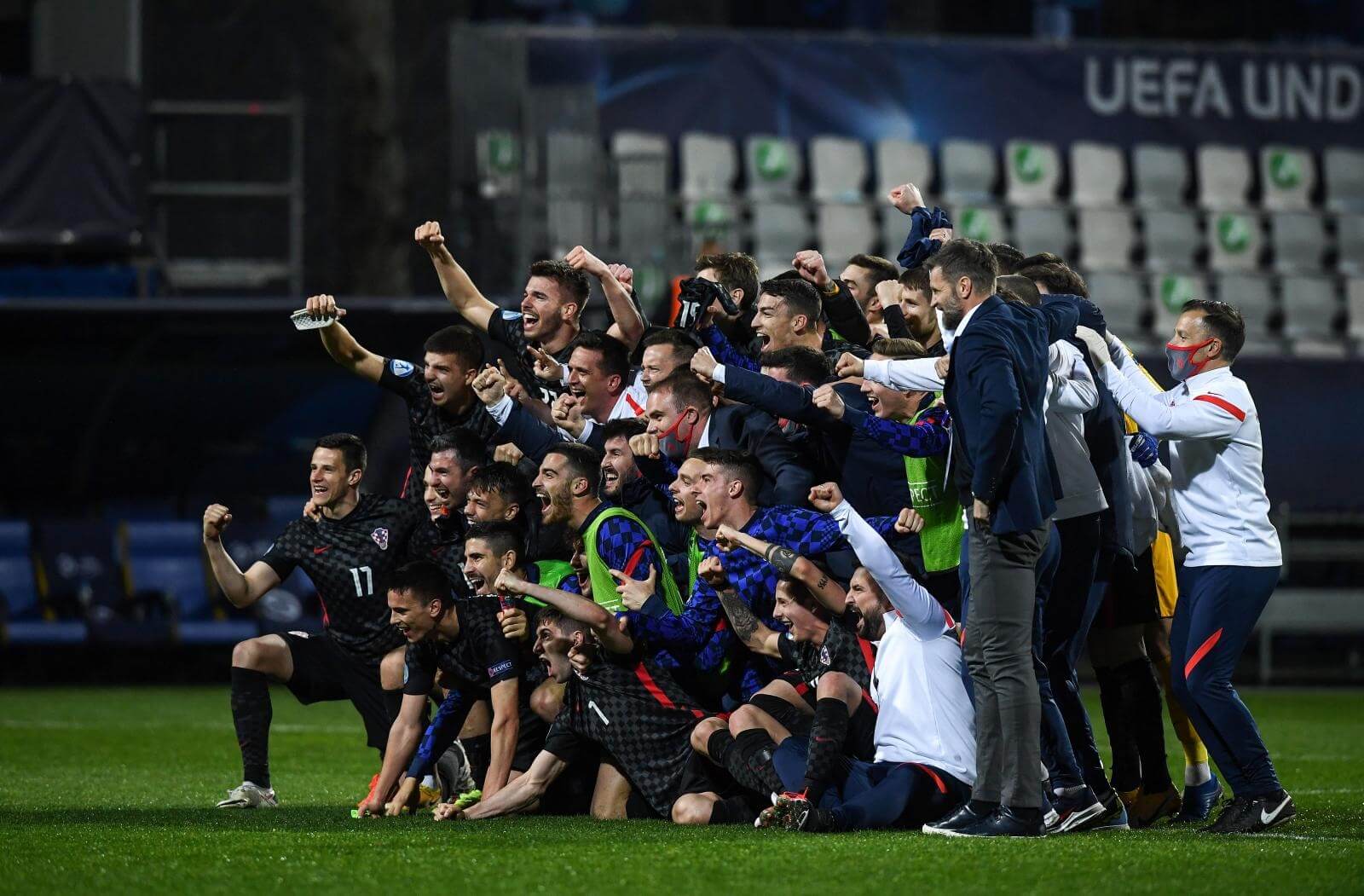
Koper, Slovenia (Credit: PIXSELL)
Ryanair announces flights to Croatia
After several years in which the Zagreb International Airport was in deficit in terms of both airlines and low-cost flights, it finally reached an agreement with the well-known Irish low-cost company Ryanair. This agreement was announced through a virtual press conference, in which it was detailed that the capital of Croatia will now be connected to European cities such as Paris, Brussels, Dortmund, Frankfurt, Karlsruhe, Memmingen, Milan, Rome, Podgorica, Oslo, Gothenburg, and London.
Zagreb wasn't the only city to rejoice with this news, as the airline also confirmed 17 new flights to Zadar International Airport in a separate conference, and passengers will be able to choose from a wide variety of European destinations from July 2021. While many still believe this news might affect the future of Croatia Airlines, others including the company itself assure that the regional base establishment of the popular airline in Zagreb will not only create more jobs but also transform the capital's tourism.
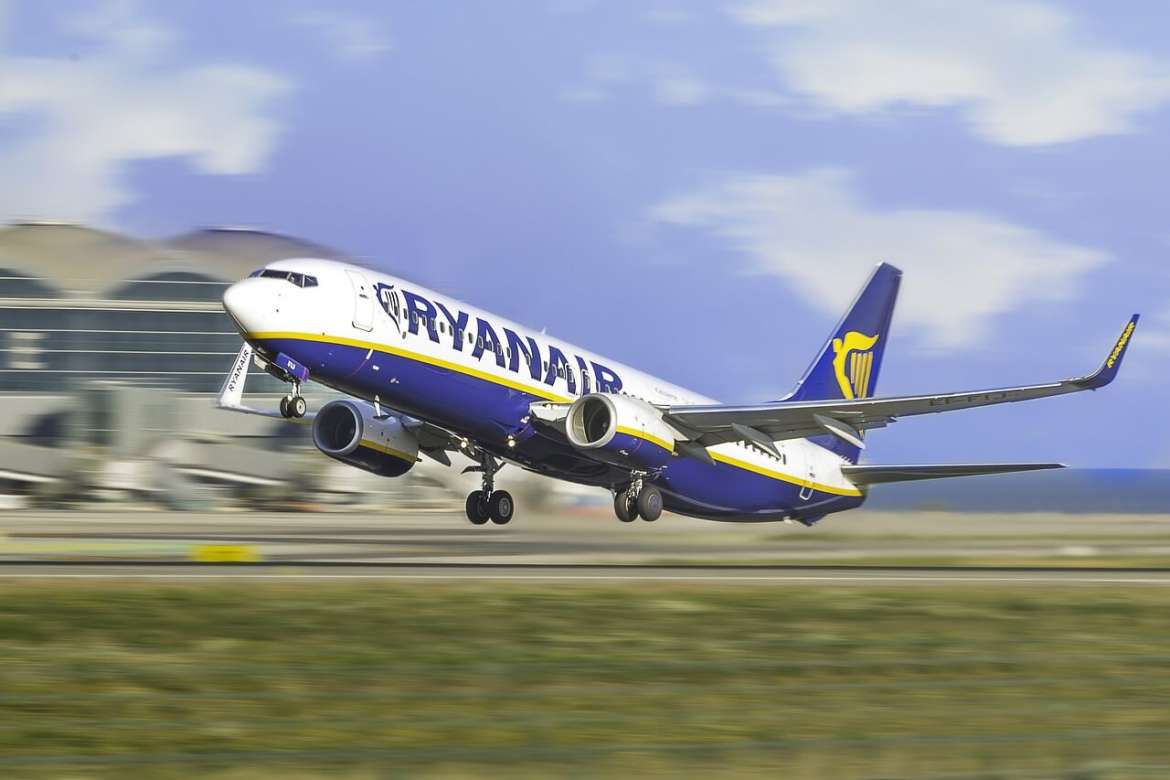
Credits: Pixabay
The Prime Minister reveals the National Recovery Plan
After a cabinet meeting which was held last Thursday, PM Andrej Plenkovic announced through a press conference all the details surrounding the National Recovery and Resilience Plan, which aims to reform and transform the country in regard to several different issues such as healthcare, employment, education, science and research, infrastructure, and more. The estimated investment would stand at 18 million kuna and the objective is to carry out these reforms within five years, more precisely between 2021 and 2026.
Plenkovic added that the plan consists of modernising scientific research and educational systems, increasing the quality of the healthcare and pension systems, improving employability through a more efficient programme, and carrying out the reconstruction and structural renovation of numerous homes and buildings in the country, in such a way that they are not only better prepared in case of natural disasters, but that they're also more adapted to the most recent demands for energy efficiency.
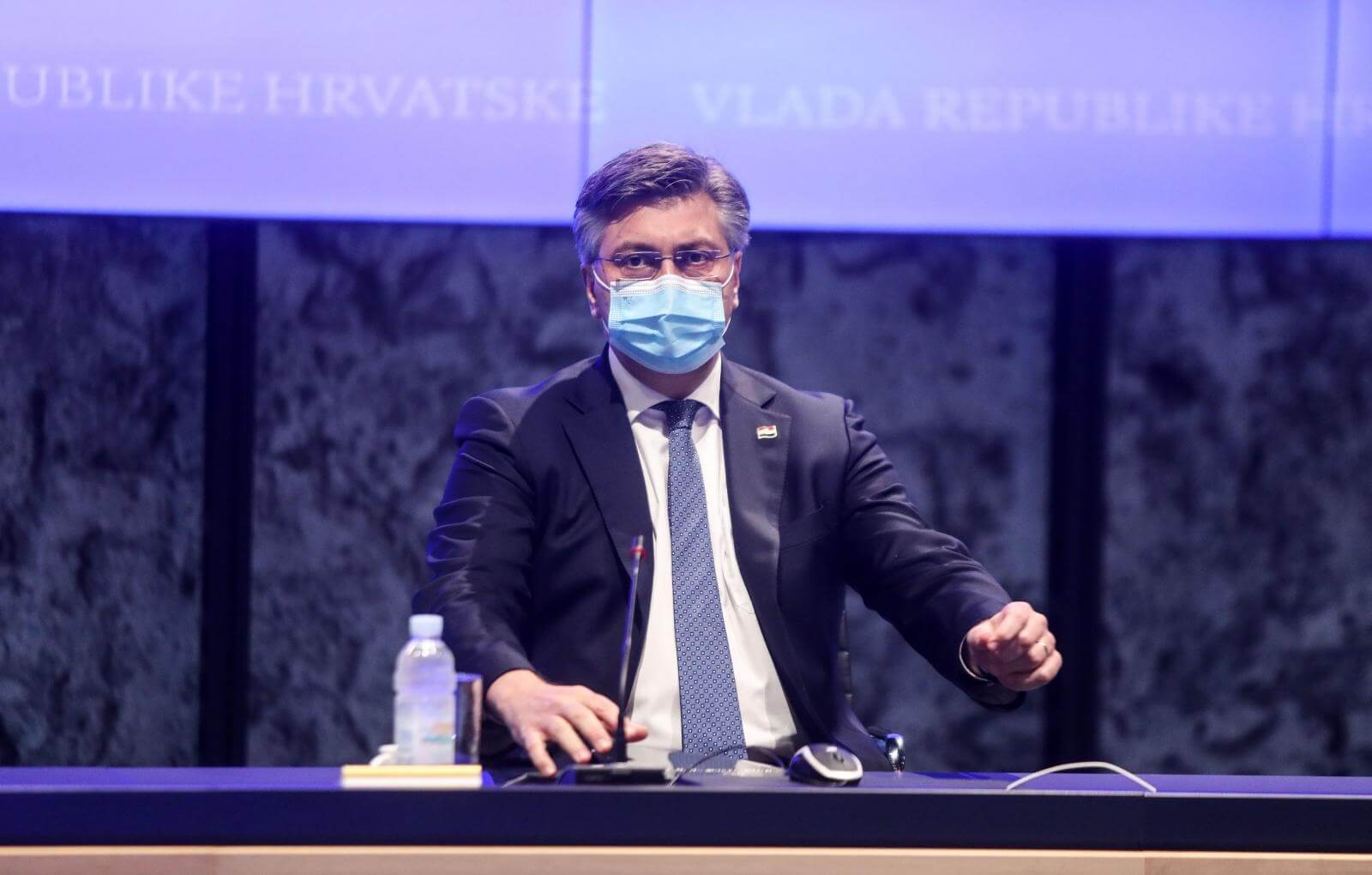
Zagreb (Credits: PIXSELL)
The traditional Za Krizen Procession was held on Jelsa
Despite the reduced capacity of followers and pilgrims this year due to the coronavirus pandemic, the island of Hvar celebrated its 2021 edition of its traditional Za Krizen (Behind the Cross) procession in the town of Jelsa, inscribed as intangible UNESCO heritage since 2009. TCN covered an event that usually gathers thousands of people around the island as they follow the carriers, but this year had to settle with only the participants and few witnesses in the streets.
The overnight processions were held in the towns of Jelsa, Pitve, Vrisnik, Svirce, Vrbanj, and Vrboska. The event started simultaneously in the six towns at 22:00 pm as the habitants have done for centuries, and ended at the main square.
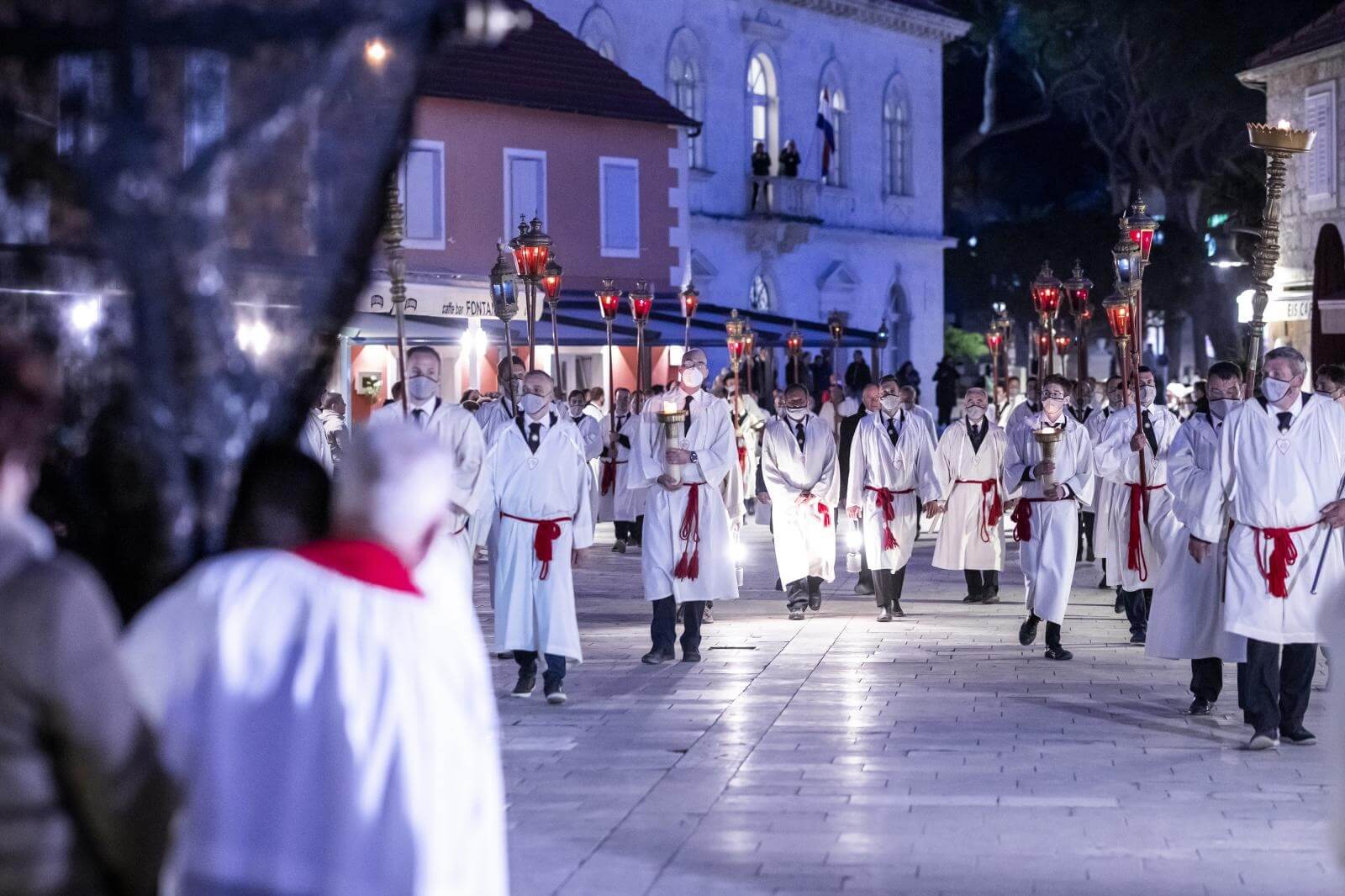
Jelsa (Credit: PIXSELL)
The measures against COVID-19 are tightened due to the large increase in cases
A month ago, all the cafes, bars, and restaurants in the country were reopened, after many weeks without serving their loyal customers, as an extreme measure to combat the virus. The condition was to serve only outdoors on the terraces and with a limited capacity. The streets were filled with life and joy again. However, one month later, the numbers have dramatically increased and although it is unlikely that a complete lockdown will be imposed again, the government has announced that new measures will take place in order to reduce the infections and it will last until 15 April, before being reviewed again.
In Split-Dalmatia County, for instance, which has seen a big increase in new infections, the mandatory wearing of face masks at outdoor venues with an increased flow of people will be introduced, as will a ban on the sale of alcohol from 8 pm to 6 am. The work of cafes will be restricted until 8 pm, and it will be possible to serve food and drinks only in the open. Foreign language schools will switch to online classes again.
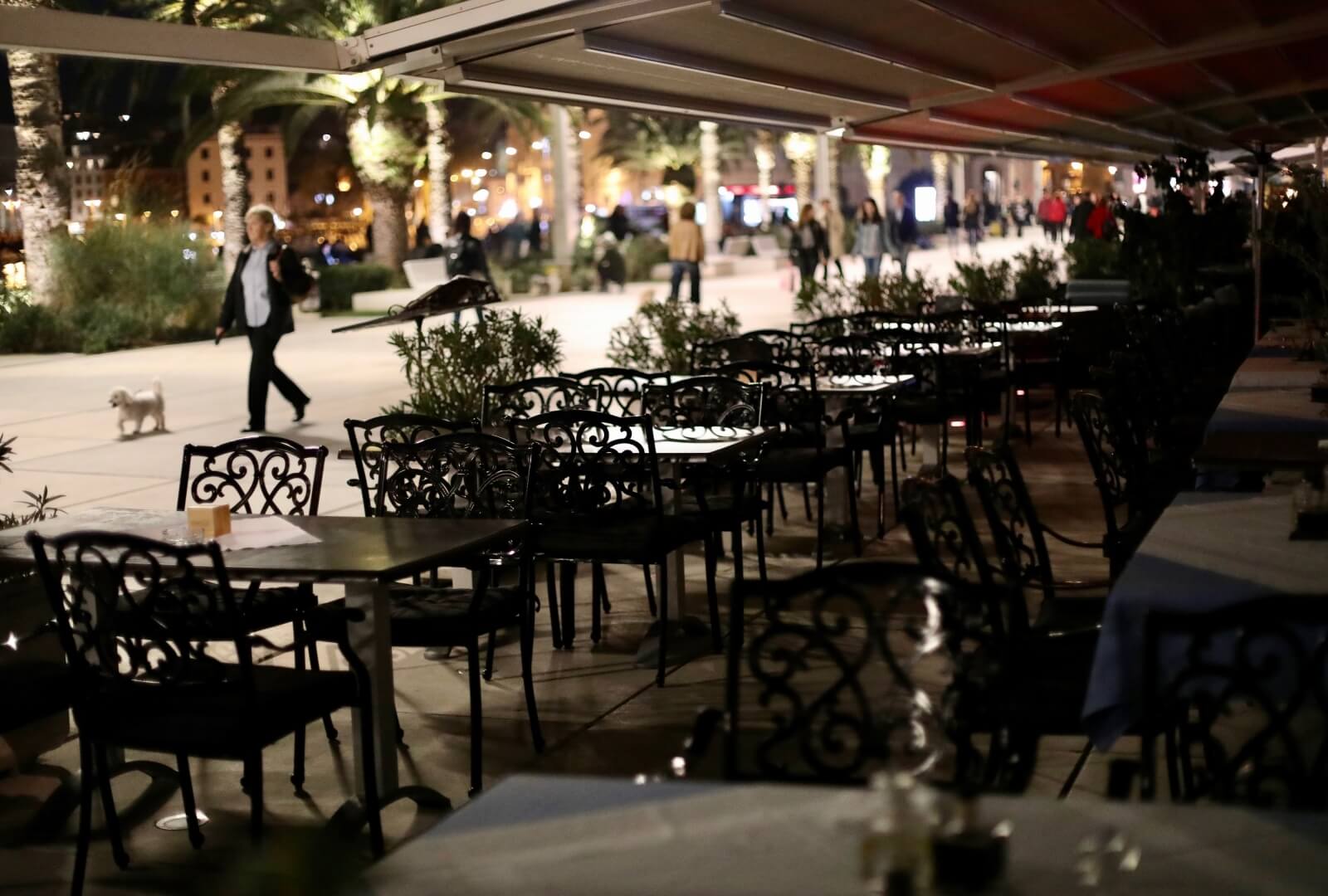
Split (Credit: PIXSELL)
From Monday to Sunday, we list five events featured on the front pages of Croatia's news portals.
To follow all news from Croatia, subscribe to our newsletter.
Croatia Reports 2,234 New Coronavirus Cases, 29 Dead
April 3, 2021 - In the past 24 hours, 2,234 new coronavirus cases and 29 COVID deaths have been registered in Croatia, the national COVID-19 response team said on Saturday.
The number of active cases is 13,753, including 1,469 hospitalized patients, of whom 158 are on ventilators, while 34,965 people are self-isolating.
To date, Croatia has registered 278,650 coronavirus cases, 6,025 deaths, and 258,872 recoveries, including 1,563 in the past 24 hours.
To date, 1,575,650 people have been tested for the virus, including 7,623 in the past 24 hours, and 419,431 have been vaccinated against it, including 96,047 with both doses. For 1,634 people, there is no information as to whether they have received one or both doses.
For more about Covid-19 in Croatia, follow TCN's dedicated page.
COVID Crisis Has Cost Us €4.3Bn So Far, Says FinMin
April 3, 2021 - The financial effect of the COVID-19 crisis on the state budget is over HRK 32 billion, according to Finance Minister Zdravko Marić.
The drop in revenues accounts for about HRK 13 billion of that amount, including measures to write off taxes and contributions, while direct expenditures and outlays due to the pandemic account for over HRK 19 billion, Marić said.
Job retention measures account for the bulk of direct expenditures, with HRK 10 billion paid to date, while about HRK 2 billion has been set aside for additional healthcare expenses. Most of the rest pertains to liquidity maintenance budgetary transfers to the Croatian Health Insurance Fund and local government, and to the Croatian Bank for Reconstruction and Development and the HAMAG agency for SMEs for their credit lines.
"We have utilized EU grants in the amount of HRK 5.9 billion, most of which from the REACT-EU package for job retention," Marić said.
However, he added, when the total financial effect of the COVID crisis is taken into account, "it's clear that so far the bulk of the cost has been at the expense of the state budget, i.e. borrowing. That affected the public debt-to-GDP ratio, which reached 89.1% at the end of 2020."
Tax revenues and contributions are coming into the state budget as expected, he said. "Such trends give us a certain optimism that the whole economy is continually adapting to the new situation and that the planned economic recovery, and thereby the consolidation of public finance, will not be significantly undermined."
Still, the continuation of the COVID crisis additionally accentuates uncertainty, notably regarding budget expenditures, Marić said, adding that he was primarily referring to ensuring additional funds for job retention and for the problems in healthcare.
He said it was also necessary to find the money for a 4% base pay rise for public sector workers and that he hoped budget beneficiaries would cut costs sufficiently to that end.
To read more about news in Croatia, follow TCN's dedicated page.
Phase 3 Vaccination Plan in Croatia: The Doses and Details
April 3, 2021 - Could 100,000 doses be delivered each week? A look at the phase 3 vaccination plan in Croatia.
Jutarnji List reports that in the second half of April, Croatia should vaccinate everyone over the age of 65 with one dose of the coronavirus vaccine, 55 percent of the total adult population should be vaccinated by June 30, and 70 percent by the end of the summer. The third phase of mass vaccination at the Zagreb Fair should finally start from mid-April, which will include all those who have registered on the cijepise.zdravlje.hr platform, according to the order of applications.
In the week when we recorded a significant increase in the number of new cases, good news arrived on Thursday night from Brussels. It was agreed that an additional 747,000 doses of Pfizer vaccine would be delivered to Croatia by the end of June. This month, Croatia should get 600,000 doses from different manufacturers, which is more than in the first three months of this year in total, which finally allows us to start mass vaccination.
Already this week, more than 120,000 doses of vaccine arrived. Zagreb received 30,000 doses of AstraZeneca on Friday, and on Wednesday, says the "Štampar" director, Zvonimir Šostar.
"We are going to finish the second phase, and then from April 15, we will enter the third phase where we will invite all Zagreb citizens registered on the cijepise.zdravlje.hr platform. Citizens will get the exact dates, and as they applied, we will call them. We ask everyone to come at the right time, and not earlier so as not to create crowds," says Šostar and adds that those who reported to their doctors will also be vaccinated because they had to register them on the platform.
"We are now in the middle of the second phase of vaccination in the whole country, but there are several people from that phase who do not want to be vaccinated, so I believe that the third phase could start on April 15 in Zagreb. We will determine the economic priorities for vaccination, and we will send all the surplus to the points for mass vaccination," says the director of the Croatian Institute of Public Health, Krunoslav Capak
Tourism Minister Nikolina Brnjac said on Friday that she expects tourism workers to begin vaccinations in May. With these additional doses of Pfizer, Croatia has now exceeded the number of 9 million ordered doses. With that, Croatia will be below the EU average by June 30 because the Union will be at 65 percent, and Croatia at 55 percent of vaccinations. This ratio would have been much worse if these additional doses had not been agreed upon because only 90,000 doses would have arrived in Croatia in the second quarter under the proportional "pro-rata" system. Croatia is now at 11.4 percent of adults vaccinated with a single dose, while the EU average is 13.9 percent.
It is unknown what amounts will arrive per week from these additional doses, but more than 50,000 doses can be expected each week until the end of June. Also, Croatia should receive 50,000 to 70,000 doses ordered earlier, which means that Croatia could have more than 100,000 doses per week.
Negotiations over these additional doses, sources say, have been quite difficult. Croatia thought that a larger amount of vaccines should be given to those countries with below-average vaccination coverage because they bet on AstraZeneca, which delivered only 30 percent of the agreed doses to the EU and only 17 percent to Croatia. In addition to Croatia, the winners of this agreement are Bulgaria, which has the lowest vaccination coverage, Latvia, Estonia, and Slovakia, while the biggest losers are the Czechs. Namely, an agreement was reached between 24 member states, and Austria, the Czech Republic, and Slovenia did not join in because they demanded a larger amount of doses for themselves. However, all three countries will be above the EU average in July.
Other countries did not agree to this, and Austrian Chancellor Sebastian Kurz and his colleagues from Slovenia and the Czech Republic remained isolated. It was not well received that Kurz was photographed with the Russian ambassador at the time when solidarity was being discussed, and it is significant that German Chancellor Angela Merkel did not even want to receive him in Berlin two weeks ago. Eventually, 19 states waived part of their total of 10 million doses arriving in the second quarter instead of the fourth.
Austria and Slovenia got something more than giving up part of their pro-rata doses but will not get anything in the fourth quarter. However, the Czech Republic, which is the hardest-hit country in the EU, received even less because it did not agree. For this principle that, in addition to pro-rata, vaccination is also considered, given the problems with AstraZeneca, Croatia advocated for an expert body of the Council, the so-called Steering Board. However, no agreement could be reached because the Scandinavian countries and Malta opposed this model.
After that, the European Council was held, after which some countries changed their position. Then, the conclusion was to find a solution in the "spirit of solidarity" for the distribution of these doses and to move the negotiations to the Permanent Representatives Committee (ambassadors). The Portuguese Presidency has put on the table a proposal to distribute 70 percent of the doses to everyone and 30 percent to go to these five states. And that was eventually accepted.
For more about Covid-19 in Croatia, follow TCN's dedicated page.
For the latest travel updates and COVID-19 news from Croatia, CLICK HERE.
Croatia Logs 2,362 COVID Cases, 29 Deaths
ZAGREB, 2 April, 2021 - In the past 24 hours 2,362 new coronavirus cases and 29 COVID deaths have been registered in Croatia, the national COVID-19 response team said on Friday.
The number of active cases is 13,111, including 1,464 hospitalised patients, of whom 153 are on ventilators, while 34,878 people are self-isolating.
Croatia has registered 276,416 coronavirus cases to date as well as 5,996 COVID deaths and 276,416 recoveries, including 1,670 in the past 24 hours.
To date 1,568,027 people have been tested for the virus, including 8,697 in the past 24 hours, and 404,518 have been vaccinated, including 92,380 with both doses. For 1,519 people there is no information as to whether they have received one or two doses.
For more about Covid-19 in Croatia, follow TCN's dedicated page.
German Authorities Place Croatia on Coronavirus High Risk List
April the 2nd, 2021 - Following hopeful announcements of German motorhomes on Croatian roads and Istria being promoted by Die Welt for eager German tourists, things have taken a dramatic downhill turn as the German authorities place Croatia on the high coronavirus risk list.
As Poslovni Dnevnik writes, on Thursday, Germany included the counties of Istria and Bjelovar-Bilogora in the list of regions with a high risk of coronavirus infection, and things have only become worse as the German Government place Croatia as a country in that unfortunate category.
Due to the growing number of newly infected people, the Robert Koch State Epidemiological Institute has declared the last two Croatian counties that were not on the list as risk areas.
A negative coronavirus test and ten days of mandatory quarantine
The above decision to place Croatia on the high risk list takes effect on Saturday, April the 3rd, and means that all people coming to Germany from Croatia will have to present a negative test for coronavirus no older than 48 hours and be quarantined for ten days after returning regardless of the result.
Self-isolation can be terminated after five days with if another negative test result is obtained after the fifth day.
Along with the Balearic islands, Istria has so far been one of the rare tourist destinations for German citizens that was not on the list of high risk areas.
Numerous Germans travelled for the Easter holidays despite appeals from the authorities not to
Despite appeals from politicians, many Germans travelled abroad for the Easter holidays this week.
Due to the large number of tourists traveling to Mallorca, the German Government passed a decree on Tuesday requiring travellers returning from that Spanish island to show a negative coronavirus test, even though Mallorca isn't currently on the list of risk regions. The interior ministry explained this by saying that those people could have easily had contact with tourists from other countries which are on the list.
The German Government also considered banning travel abroad entirely, as the United Kingdom has done unless that travel is for necessary purposes, but dropped it for both constitutional and legal reasons.
For all current information on coronavirus specific to Croatia, including border and travel rules, as well as testing centres up and down the country, make sure to bookmark this page.
Croatia Reports 2,422 New Coronavirus Cases, 20 Deaths
ZAGREB, 1 April, 2021 - In the last 24 hours 2,422 new coronavirus cases have been registered in Croatia, with the share of infected persons among those tested reaching 25.56%, Health Minister Vili Beroš told a cabinet meeting on Thursday.
Currently, 33,376 people are self-isolating and 1,337 are receiving hospital treatment, including 144 who are on ventilators.
"A total of 6,832 persons have been infected this week alone, and compared with the start of last month, the number of patients on ventilators has nearly doubled and the number of hospital patients has increased by 60%," Beroš said.
By Wednesday, 2,632 samples have been sent for sequencing and the results show that the British variant of the coronavirus was detected in 67% of them.
Croatia has so far received 540,845 vaccine doses, and by 30 March 463,003 doses have been administered, or 86% of the doses received.
Beroš said that additional intensive care units are being reopened in the Dubrava Hospital in Zagreb, as well as in other hospitals as necessary.
He called on the citizens to refrain from large gatherings during the Easter holidays, to maintain a safe distance, wear masks and air out their rooms.
In the last 24 hours, there have been 20 COVID-related deaths bringing the death toll to 5,967.
The head of the national coronavirus response team, Interior Minister Davor Božinović, spoke of the measures to contain the coronavirus, which are being tightened until 15 April.
"Given the fact that the epidemiological situation is not the same everywhere, the national response team is introducing the new measures for the large part at the proposal of county teams," Božinović said.
Over the next two weeks, indoor training will be forbidden at national level, except for top athletes, and the work of indoor play groups will be restricted.
As for the border crossing regime, for entry into Croatia fast antigen tests, recognised by EU member states, and vaccination certificates will be recognised.
For more about COVID-19 in Croatia, follow TCN's dedicated page.
German Motorhomes on Croatian Highways Provide Glimmer of Hope
April the 1st, 2021 - With the coronavirus pandemic still raging on across the globe, tourism continues to be among the most negatively affected economic branches. Croatia, relying very heavily on tourism for its overall revenue, has been dealt a significant blow. However, as Easter approaches, motorhomes on Croatian highways bearing German license plates offer a dash of hope.
As Barbara Ban/Novac writes, in normal, non-pandemic years, the period just before Easter here in Croatia tends to be welcomed by a significant opening up of tourist facilities. This year, despite expectations being low, the same thing has occurred but with carefully adjusted the safety standards to national and international recommendations as a result of the global public health crisis we find ourselves in.
Of particular note is the excellent reception in Croatia's emitting countries with the Safe stay in Croatia programme, which shows that Croatia is preparing extremely well for the tourist season in which safety will be the most important factor for any level of success. Although it would be wrong to get too ahead of ourselves, the fact that foreign plates are being seen on Croatian highways is encouraging.
"Guests will also be staying in our camps. We have announcements from locals who have mobile homes, they have slowly started to visit during the weekends, during holidays, etc. For example, this week a well known camp in Istria opened up its outdoor heated pools. Since Istria, at least for Germany, is still green, motorhomes with German plates are visible on Croatian highways. We even have several smaller family camps that are already full of Germans visitors,'' said Adriano Palman, the director of the Croatian Camping Association.
On the eve of Easter, Valamar plans to open the doors of many of its tourist facilities, including higher end hotels and camps. During the Easter holidays themselves, Maistra will also do the same. Pula's Arena Hospitality Group, in addition to the 365-day Grand Kazela Campsite Arena, opened Park Plaza Belvedere Medulin Hotel way back in January, and the Medulin Campsite Arena opened back on March the 27th. Projections also seem good for this company's facilities on the islands and even in Marija Bistrica in the continental part of the country.
From today, so from April the 1st, Plava Laguna will open the doors of the following hotels: Parentium and Park in Porec, Melia Coral for Plava Laguna in Umag and Hotel Bonavia in Rijeka, which is set to remain operational all the time during 2021.
After April the 20th, it will open all of its camps in both Porec and Umag in Istria, and in May it will open yet more. More specifically, from April the 23rd, all Blue Lagoon camps that operate under the Istracamping brand in Porec and Umag will open up as normal, as well as Garden Suites Park Blue Lagoon, Apartments Park Blue Lagoon, Villas Park Blue Lagoon, Apartments Bellevue Blue Lagoon, Villas Bellevue Blue Lagoon , Hotel Molindrio Plava Laguna, Apartments Galijot Plava Laguna, Hotel Istra Plava Laguna, Hotel Plavi Plava Laguna, Apartments Astra Plava Laguna in Porec and Hotel Sol Umag for Plava Laguna, Garden Suites and Rooms Sol Umag for Plava Laguna, Hotel Sol Garden Istra for Plava Laguna, Residence Sol Garden Istria for Plava Laguna, Melia Istrian Villas for Plava Laguna, Apartments Sol Amfora for Plava Laguna and Apartments Sol Stella for Plava Laguna in Umag.
From April the 1st, Camp Aminess Sirena - Novigrad, Aminess Atea Camping Resort and Aminess Gaia Green Villas will open in Njivice on the island of Krk. The opening of the Aminess Maravea Camping Resort in Novigrad on April the 23rd this year is also planned.
The Boutique Hostel Forum, a design hostel in the very centre of Zadar, which has been named the best Croatian hostel four times and which operates in accordance with the national safety label - Safe Stay in Croatia, has been open since March the 15th.
With German license plates already visible now and then on Croatian highways, just what this pre-season is set to bring remains to be seen, and although it will be absolutely nothing like pre-pandemic, record 2019, an improvement when compared the a horrendous 2020 might be expected.
For all current coronavirus information specific to Croatia, including border and travel rules, as well as testing centres across the country, make sure to bookmark this page.
Tourism Minister Nikolina Brnjac: We Are Working On Clear Criteria For Entry Into Croatia
ZAGREB, 31 March, 2021 - Tourism and Sports Minister Nikolina Brnjac said on Wednesday that clear entry criteria for Croatia were being prepared according to European Commission recommendations for travel across borders, which will probably be - recovered from COVID-19, vaccination or a PCR or antigen test.
Asked by reporters ahead of an inner cabinet meeting what she thinks of the measures by the national COVID response team and how the deteriorated epidemiological situation is being reflected on tourism and bookings, Minister Brnjac said that as soon as the European Commission released its draft recommendations on travel restrictions, Croatia immediately started working on clear criteria for entry into Croatia.
The Commission recently proposed a regulation on creating a Digital Green Certificate which should enable safe travel within the European Union during the pandemic. The certificate should be proof that a person has been vaccinated against COVID-19, has received a negative test result or recovered from COVID-19.
Brnjac added that this requires technical preparations which are already being worked on in the Interior Ministry and the Croatian Institute for Public Health so that, as soon as the regulation enters into force, it can be integrated in the system.
That is important because of the epidemiological situation, which is why at the end of 2020 we launched safe protocols and the "Safe stay in Croatia" label, she said.
"We have previously warned that the most important thing is for Croatia to be in the 'green' zone and we asked local tourist boards to recommend testing stations for tourists... We need to achieve flow of both tourists and tests," said Brnjac.
Asked how the current situation is being reflected on bookings, Brnjac said that she is in constant contact with partners on the markets and that there has been an increase in enquiries, mostly about whether Croatia is in the "green" and about the vaccination of tourism workers which, she added, could be conducted in May and June as "vaccines are coming."
"There are fewer bookings than in previous years, even for Easter, but more are expected... from the end of May and in June, for which there is more interest by tourists, and that is why we should have the best epidemiological situation possible," she said.
Asked about aid for travel agencies which are required to refund deposits for cancelled travel arrangements, yet don't have the funds to do so, Brnjac said "they can get loans and return what they owe, with state guarantees for up to 100 per cent of the loans that are earmarked for SMEs and 90% for (those earmarked for) large companies."
For more about politics in Croatia, follow TCN's dedicated page.


